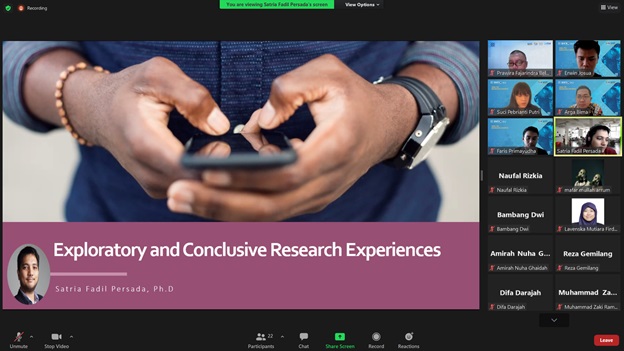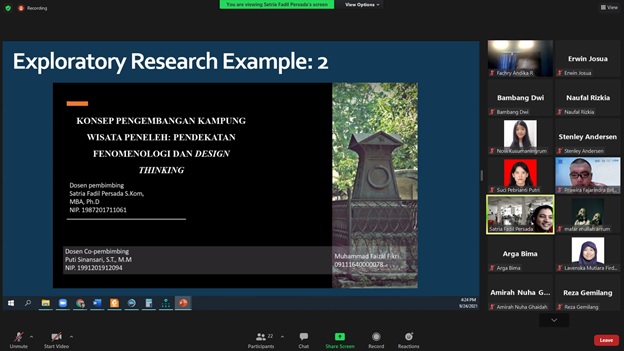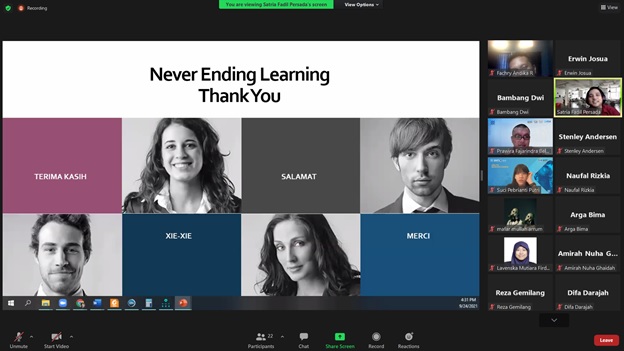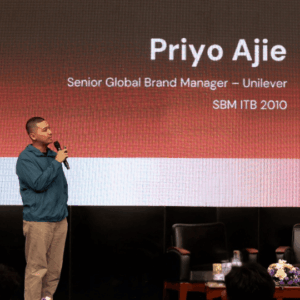A reliable marketer must have good research skills. Research findings can produce blue ocean potential, map the size and characteristics of the market, see trends, manufacture products, pricing strategies, and promotions.

In theory, marketing research can be divided into two types: exploratory research and conclusive research. Exploratory seeks insight and comprehension of the marketing phenomenon, while Conclusive Research reviews and quantifies preconceived ideas. Conclusive Research can be divided into two parts: descriptive research, which attempts to explain the market, and causal research, which seeks to identify cause-and-effect relationships in a phenomenon.
Satria expanded the horizons of the event participants. “There are numerous intriguing topics to investigate further, such as experiments to measure temperature optimization in consumer drinks, looking for variables that determine customer intention in digital learning, and comparing the use of e-wallet features in online purchases versus in-store purchases. The others are trends in purchasing halal Muslim symbol products by Muslims, and research on the potential of the Peneleh area as a historical tourism village,” said the man who graduated from the National Taiwan University of Science and Technology and the Sepuluh Nopember Institute of Technology Surabaya.

Some points should be highlighted, particularly in academic research. First, research must be conducted with full awareness and honesty for the science interest. Marketing research should not harm a person’s or company’s reputation if it is conducted based on constructive principles.
Another boundary that researchers must maintain the issue of data sensitivity. Researchers must understand which data is public and which should be kept secret or disguised. Sensitive data, such as company, banking, government, and personal data from respondents, must be considered secure. Also, there are limitations that may come from the respondents’ data limitation, error, and validity in answering. It is hoped that using these notes, marketers will address the challenges of knowledge development.






